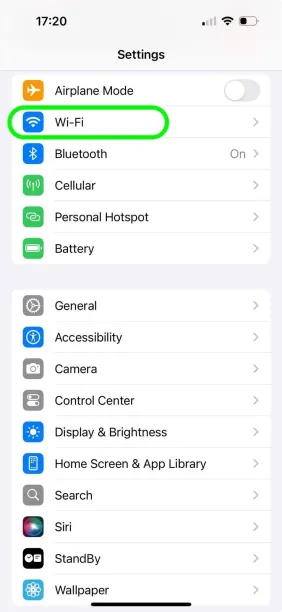How to Build a Successful Career in Software Engineering: 10 Expert Tips
10 tips to make sure that you have everything you need to succeed in your career as a software engineer. Number 1: Master the Fundamentals This is really crucial. Imagine a scenario where someone shares an idea they’re excited about but says, “Oh, but I’m only going to implement this in Python.” That’s the wrong mentality. The issue here is a lack of understanding of the fundamentals. So, what I would say is: pick a language that will teach you the fundamentals — a language that covers most of the concepts you’ll need. For example, Python is not suitable for solving every single problem out there. The same goes for JavaScript. The problem is, if you only know one language, you won’t have an idea of which language is best to solve a particular problem. In my opinion, pick a language that will teach you a bunch of these concepts. C++, Java, and C# are good languages I recommend for learning and grasping the fundamentals. Number 2: Keep on Learning This is really important. As you know, technology moves at a very fast pace. What you don’t want to do is to be an engineer stuck in the past. Make sure that you read blogs, follow the trends, see what’s out there, read open-source projects, and even listen to podcasts to stay up to date. Number 3: Work on Side Projects Side projects are the best way to grow as a developer. For example, imagine working on a project that translates videos into multiple languages using a serverless architecture. Even if you’ve never done it before, starting such a challenge pushes you to learn and experiment. The benefit of side projects is that you keep improving yourself day by day. You’re not just stuck with the stuff you work on at your job, but you’re challenging yourself, making you a better developer. Number 4: Practice Problem-Solving This is really important. Problem-solving will help you understand how to solve problems effectively. I hear some people say, “Oh, I’m a Java engineer,” or “I’m a C# engineer,” or “I only do JavaScript,” or “I only do front-end.” That is the wrong mentality. You should be an engineer — someone who is willing to solve problems. With that mindset, all of that “I only do X” crap goes away, and you become a valuable asset in your organization. Now, it doesn’t matter what language you know. You can start on any project and attempt it as someone ready to solve problems. Platforms like LeetCode, HackerRank, and many others help you develop your problem-solving skills. If you want to get into Google, Microsoft, or other tech giants, this is a skill you must have. Number 5: Focus on Clean Code One thing is how do you write maintainable code, readable code? Because as you work within a team, it’s not just you — you have to think about the other engineers working alongside you. If you just check in rubbish code, imagine someone else going into that codebase and seeing it. It’s not nice. So, focus on clean code. Number 6: Learn Version Control This is really important because, as you start your career, it’s crucial that you know version control inside out. This is something you’ll use every single day. It also helps you build your portfolio. As you become more experienced and apply for other jobs, you’ll have your portfolio ready to showcase. Within Git or other version control systems, learn all the best practices. Number 7: Master Debugging This is a skill that will come over time. When I say debugging, I’m not just talking about fixing a null pointer exception or a small bug. I’m talking about knowing how to use the debugging tools available within your IDE, knowing how to use the environment and monitoring tools available to you to debug issues that happen in production. For example, if you have a complaint, you should have all the tooling around you to diagnose the issue. Sometimes, it might not even be an issue with your backend code — it might be within the database, like a transaction or a race condition. So, make sure to master debugging because, as software engineers, this is something we do regularly. Number 8: Communicate Effectively Imagine you walk into a stand-up meeting, and you’re giving an update about a problem you tried to solve, but you can’t even explain it. I know it happens to all of us — some of us might be nervous, and some of us don’t have the communication skills. But this is important because, as you go through your career and become more senior, if you cannot communicate effectively, trust me, people will not trust you. It depends on what you want to do. Do you want to be someone who leads, or do you want to be a solo developer? If you want to become someone who leads, communication is very important. Number 9: Develop Soft Skills Don’t just be an engineer and stop there. Make sure you can work efficiently across multiple teams, get along with people, and know how to talk if an issue arises. You should know how to so

10 tips to make sure that you have everything you need to succeed in your career as a software engineer.
Number 1: Master the Fundamentals
This is really crucial. Imagine a scenario where someone shares an idea they’re excited about but says, “Oh, but I’m only going to implement this in Python.” That’s the wrong mentality. The issue here is a lack of understanding of the fundamentals.
So, what I would say is: pick a language that will teach you the fundamentals — a language that covers most of the concepts you’ll need. For example, Python is not suitable for solving every single problem out there. The same goes for JavaScript. The problem is, if you only know one language, you won’t have an idea of which language is best to solve a particular problem.
In my opinion, pick a language that will teach you a bunch of these concepts. C++, Java, and C# are good languages I recommend for learning and grasping the fundamentals.
Number 2: Keep on Learning
This is really important. As you know, technology moves at a very fast pace. What you don’t want to do is to be an engineer stuck in the past. Make sure that you read blogs, follow the trends, see what’s out there, read open-source projects, and even listen to podcasts to stay up to date.
Number 3: Work on Side Projects
Side projects are the best way to grow as a developer. For example, imagine working on a project that translates videos into multiple languages using a serverless architecture. Even if you’ve never done it before, starting such a challenge pushes you to learn and experiment.
The benefit of side projects is that you keep improving yourself day by day. You’re not just stuck with the stuff you work on at your job, but you’re challenging yourself, making you a better developer.
Number 4: Practice Problem-Solving
This is really important. Problem-solving will help you understand how to solve problems effectively. I hear some people say, “Oh, I’m a Java engineer,” or “I’m a C# engineer,” or “I only do JavaScript,” or “I only do front-end.” That is the wrong mentality. You should be an engineer — someone who is willing to solve problems. With that mindset, all of that “I only do X” crap goes away, and you become a valuable asset in your organization.
Now, it doesn’t matter what language you know. You can start on any project and attempt it as someone ready to solve problems. Platforms like LeetCode, HackerRank, and many others help you develop your problem-solving skills. If you want to get into Google, Microsoft, or other tech giants, this is a skill you must have.
Number 5: Focus on Clean Code
One thing is how do you write maintainable code, readable code? Because as you work within a team, it’s not just you — you have to think about the other engineers working alongside you. If you just check in rubbish code, imagine someone else going into that codebase and seeing it. It’s not nice. So, focus on clean code.
Number 6: Learn Version Control
This is really important because, as you start your career, it’s crucial that you know version control inside out. This is something you’ll use every single day. It also helps you build your portfolio. As you become more experienced and apply for other jobs, you’ll have your portfolio ready to showcase. Within Git or other version control systems, learn all the best practices.
Number 7: Master Debugging
This is a skill that will come over time. When I say debugging, I’m not just talking about fixing a null pointer exception or a small bug. I’m talking about knowing how to use the debugging tools available within your IDE, knowing how to use the environment and monitoring tools available to you to debug issues that happen in production.
For example, if you have a complaint, you should have all the tooling around you to diagnose the issue. Sometimes, it might not even be an issue with your backend code — it might be within the database, like a transaction or a race condition. So, make sure to master debugging because, as software engineers, this is something we do regularly.
Number 8: Communicate Effectively
Imagine you walk into a stand-up meeting, and you’re giving an update about a problem you tried to solve, but you can’t even explain it. I know it happens to all of us — some of us might be nervous, and some of us don’t have the communication skills. But this is important because, as you go through your career and become more senior, if you cannot communicate effectively, trust me, people will not trust you.
It depends on what you want to do. Do you want to be someone who leads, or do you want to be a solo developer? If you want to become someone who leads, communication is very important.
Number 9: Develop Soft Skills
Don’t just be an engineer and stop there. Make sure you can work efficiently across multiple teams, get along with people, and know how to talk if an issue arises. You should know how to solve issues in the best manner possible because that’s what leaders are made of. If there’s something to blame, you should be the one to take responsibility and not point fingers at your team. So, soft skills are very important.
Number 10: Network and Seek Mentorship
This is one you should act upon because, as you go through your career, your network is something you never know about. Literally, you might have a friend or someone you work with who has a startup, and you might get a recommendation. If you’re known to be reliable, there are so many opportunities that can arise from it. Also, seek a mentor. This is so important. In my case, my mentor is the community, never had the chance to learn from a real mentor face to face.
Summary
To recap, here are the 10 tips to succeed as a software engineer:
- Master the fundamentals.
- Keep on learning.
- Work on side projects.
- Practice problem-solving.
- Focus on clean code.
- Learn version control.
- Master debugging.
- Communicate effectively.
- Develop soft skills.
- Network and seek mentorship.
If you find this article informative, let me know what you want to read next, and I’ll write you another one!
Thank You for Reading to the end
Let’s grow, learn, and build amazing things together!
Don’t forget to give it a heart, save it to your list, and follow me.
Stay connected with me on my other platforms:
What's Your Reaction?






































![Depth of Knowledge and leading PD [NAESP]](http://dangerouslyirrelevant.org/wp-content/uploads/2025/01/NAESP-Logo-Square-2.jpg)







































